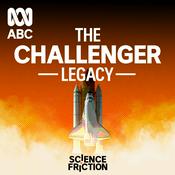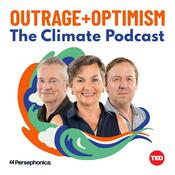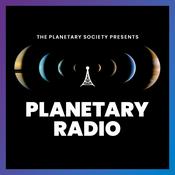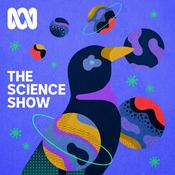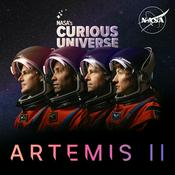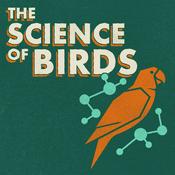1892 episodes
- Many of the events in the Winter Olympics involve some sort of sliding or slipping on ice—in a skillful, controlled way. Those moves often seem effortless, but the physics behind what makes them possible is messy. For centuries, scientists have been trying to figure out why ice is slippery. In this episode of Science Quickly, host Kendra Pierre-Louis laces up her skates to explore the slippery truth behind that deceptively simple question. She’s joined by science journalist Paulina Rowińska and physicists Daniel Bonn and Martin Müser, who take us through various competing theories and explain how we may finally have a winner.
Recommended Reading:
“Why Is Ice Slippery? A New Hypothesis Slides Into the Chat,” by Paulina Rowińska, in Quanta Magazine. Published online December 8, 2025
E-mail us at [email protected] if you have any questions, comments or ideas for stories we should cover!
Discover something new everyday: subscribe to Scientific American and sign up for our daily newsletter.
Science Quickly is produced by Kendra Pierre-Louis, Fonda Mwangi, Sushmita Pathak and Jeff DelViscio. This episode was edited by Alex Sugiura, with fact-checking by Shayna Posses and Aaron Shattuck. Our theme music was composed by Dominic Smith.
Learn more about your ad choices. Visit megaphone.fm/adchoices - In this episode of Science Quickly, multimedia journalist Meghan McDonough explores how emerging artificial-intelligence‑powered “smart home” tools are helping people with Alzheimer’s disease and other conditions that cause dementia stay safer at home while easing the load on caregivers. And McDonough examines the key ethical, privacy and access questions that come with relying on these technologies.
Recommended Reading:
Meet Your Future Robot Servants, Caregivers and Explorers
The Heartbreak and Hazards of Alzheimer’s Caregiving
E-mail us at [email protected] if you have any questions, comments or ideas for stories we should cover!
Discover something new everyday: subscribe to Scientific American and sign up for our daily newsletter.
Science Quickly is produced by Kendra Pierre-Louis, Fonda Mwangi, Sushmita Pathak and Jeff DelViscio. This episode was reported and co-hosted by Meghan McDonough and edited by Alex Sugiura. Shayna Posses and Aaron Shattuck fact-check our show. Our theme music was composed by Dominic Smith.
Learn more about your ad choices. Visit megaphone.fm/adchoices - In this episode of Science Quickly, we unpack the Trump administration’s move to repeal the Environmental Protection Agency’s “endangerment finding” and its effect on the future of U.S. climate policy. We also look at why this winter has felt brutally cold to many on the East Coast. Plus, we explore the physics behind a rumored ski jumping controversy at the Winter Olympics—a rather NSFW scandal—that involves hyaluronic acid and male genitals.
Recommended Reading:
EPA scraps the ‘endangerment finding’ that climate change harms human health
Why has this winter been so cold?
The physics of ‘Penisgate’ and how ski jumpers fly
E-mail us at [email protected] if you have any questions, comments or ideas for stories we should cover!
Discover something new everyday: subscribe to Scientific American and sign up for our daily newsletter.
Science Quickly is produced by Kendra Pierre-Louis, Fonda Mwangi, Sushmita Pathak and Jeff DelViscio. This episode was edited by Alex Sugiura, with fact-checking by Shayna Posses and Aaron Shattuck. Our theme music was composed by Dominic Smith.
Learn more about your ad choices. Visit megaphone.fm/adchoices - With Valentine’s Day around the corner, kissing may be on your mind. But why do we kiss? In this episode of Science Quickly, evolutionary biologist Matilda Brindle joins host Kendra Pierre-Louis to uncover the evolutionary roots of kissing. We trace kissing back 21.5 million years and learn how it’s common among primates and what that tells us about how kissing may have evolved among humans. Plus, we also unpack recent findings that hint that humans and Neandertals may have once locked lips.
Recommended Reading:
Kissing May Have Evolved 21.5 Million Years Ago
E-mail us at [email protected] if you have any questions, comments or ideas for stories we should cover!
Discover something new every day: subscribe to Scientific American and sign up for our daily newsletter.
Science Quickly is produced by Kendra Pierre-Louis, Fonda Mwangi, Sushmita Pathak and Jeff DelViscio. This episode was edited by Alex Sugiura, with fact-checking by Shayna Posses and Aaron Shattuck. Our theme music was composed by Dominic Smith.
Learn more about your ad choices. Visit megaphone.fm/adchoices - In this episode of Science Quickly, hosts Kendra Pierre-Louis and Allison Parshall dive into the surprising linguistics behind the hit TV series Heated Rivalry. Pierre-Louis and Parshall speak with the show’s Russian dialect coach Kate Yablunovsky about how she helped actor Connor Storrie deliver impressively authentic Russian dialogue on a tight time line. Yablunovsky breaks down what the toughest Russian sounds are for English speakers, why perfect accents aren’t always the goal and how cultural context, mouth posture and psychology all shape believable performances.
E-mail us at [email protected] if you have any questions, comments or ideas for stories we should cover!
Discover something new everyday: subscribe to Scientific American and sign up for our daily newsletter.
Science Quickly is produced by Kendra Pierre-Louis, Fonda Mwangi, Sushmita Pathak and Jeff DelViscio. This episode was edited by Alex Sugiura, with fact-checking by Shayna Posses and Aaron Shattuck. Our theme music was composed by Dominic Smith.
Learn more about your ad choices. Visit megaphone.fm/adchoices
More Science podcasts
Trending Science podcasts
About Science Quickly
Host Rachel Feltman, alongside leading science and tech journalists, dives into the rich world of scientific discovery in this bite-size science variety show.
Podcast websiteListen to Science Quickly, Boring History for Sleep and many other podcasts from around the world with the radio.net app

Get the free radio.net app
- Stations and podcasts to bookmark
- Stream via Wi-Fi or Bluetooth
- Supports Carplay & Android Auto
- Many other app features
Get the free radio.net app
- Stations and podcasts to bookmark
- Stream via Wi-Fi or Bluetooth
- Supports Carplay & Android Auto
- Many other app features


Science Quickly
Scan code,
download the app,
start listening.
download the app,
start listening.







